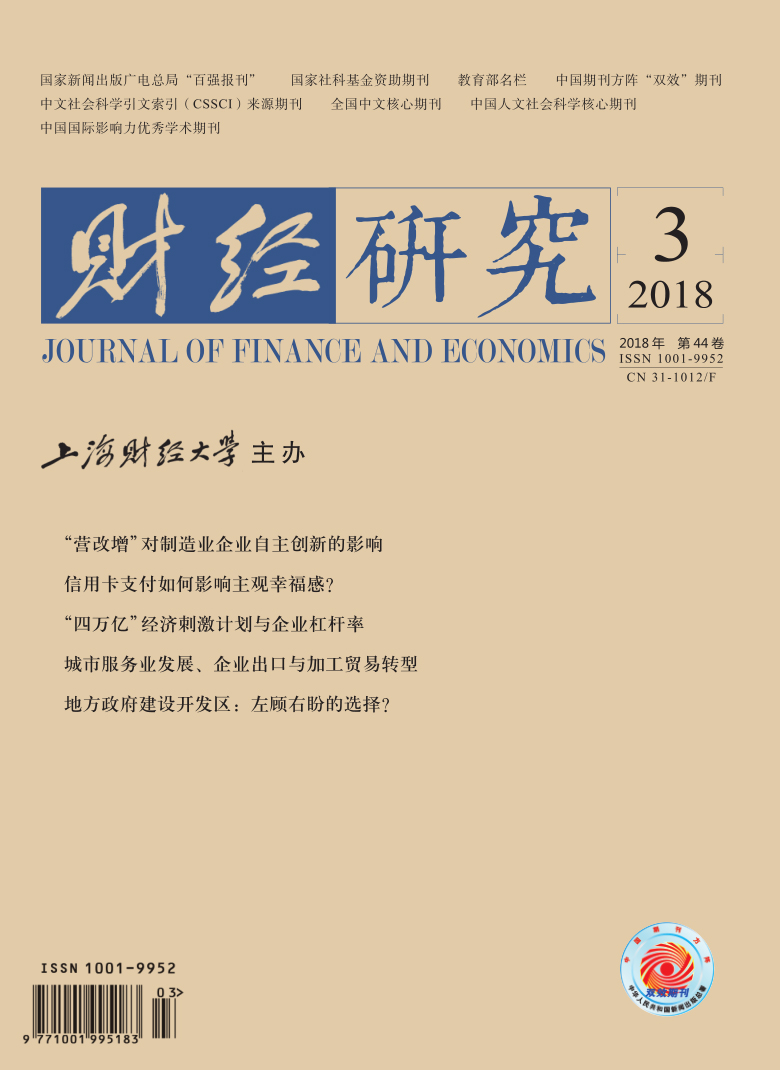With the expansion of higher education for many years, the difficulty in graduates’ employment and the continuous decrease in the starting salaries have become the typical features of China’s labor market in recent years. Under pressure from all facets, many university graduates have to engage in jobs that do not match their education. The mismatch between education and jobs not only implies the inefficient allocation of resources invested in education, but also imposes penalty effect on labor wages. How is the effect of educational mismatch on wages? How to avoid measurement error and the heterogeneity from unobservable variable " ability”? What is the theoretical mechanism of the effect of educational mismatch on wages? Thus, this paper analyzes the effect of educational mismatch on wages on the basis of the models proposed by Duncan & Hoffman(1981), and Verdugo, R.R & Verdugo, NT(1989), by using the panel data of China Family Panel Studies(CFPS)from 2010 to 2014. We use a fixed effects model and instrumental variable estimates to address the two econometric problems faced by the empirical literature: omitted variable bias and measurement error. The fixed-effect instrumental variable estimates in this paper confirm that overeducated workers suffer from a wage penalty of 1.4%. Conversely, under-educated employees receive a bonus of 2.4%. Both omitted variable bias and measurement error are inevitable and important factors. The upward bias which is caused by the omission of unobservable variable " ability” is offset by the downward bias caused by measurement error to a large extent. In addition, this paper further tests the theoretical mechanism of the effect of education mismatch on employment. we find educational requirement for jobs is the vital determinant of wages for employees aged 40 or above, while it has no significant effect on wages for those under the age of 40. In other words, as employees’ working years are getting longer and longer, their wages gradually depend on their current productivity and skills, rather than the education they have received when they left the education system. Workers who take voluntary job changes are less prone to over-education. Therefore, as their career progresses, the employees constantly seek jobs that match their educational skills, so that the mismatch has been improved. It means that the occupation liquidity hypothesis holds in China. There is a compensation mechanism between education mismatch and human capital. The over-education can compensate for the lack of expression ability, understanding capability, and health at work. The enlightenment contained in the conclusion of this paper is as follows: firstly, the education authorities should reform the education system, so as to provide the skilled graduates needed by the market; secondly, colleges and universities should adjust the subject structure and personnel training structure actively and effectively to meet the needs of the market; what’s more, companies should establish the talent identification and multi-level reward and punishment mechanism so as to identify the over-educated workers and release their labor productivity; finally, the governments should strengthen career guidance and help university graduates to find more matched jobs so as to reduce the time of job seeking and weaken the wage premium problem.
 / Journals / Journal of Finance and Economics
/ Journals / Journal of Finance and EconomicsJournal of Finance and Economics
LiuYuanchun, Editor-in-Chief
ZhengChunrong, Vice Executive Editor-in-Chief
YaoLan BaoXiaohua HuangJun, Vice Editor-in-Chief
The Penalty Effect of Educational Mismatch on Wages: An Empirical Study Based on Micro Panel Data of China
Journal of Finance and Economics Vol. 44, Issue 03, pp. 84 - 96 (2018) DOI:10.16538/j.cnki.jfe.2018.03.007
Summary
References
Summary
Keywords
[1]Fan A A. Human capital surplus and scarcity of college graduates: An empirical study from the perspective of compensatory over education[J]. Peking University Education Review, 2012, (4): 100-119. (In Chinese)
[2]Luo R D, Peng M M. Over education and analysis of its trend: Based on CGSS survey of higher education staff[J]. Comparative Economic & Social Systems, 2010, (5): 173-179. (In Chinese)
[3]Wu X R. Over education phenomenon and its income effects: An empirical analysis based on the currnt Chinese situation[J], Journal of Beijing Normal University (Social Sciences), 2007, (3): 132-136. (In Chinese)
[4]Wu X R, Lai D S. On the incidence of over-education and its influencing factors: Based on the analysis of Beijing city[J]. Research in Educational Development, 2010, (19): 36-61. (In Chinese)
[5]Yan M, Wang W W. An empirical test on skill-biased technological change and comment on college premium in China[J]. Statistical Research, 2014, (10): 55-62. (In Chinese)
[6]Bauer T K. Educational mismatch and wages: A panel analysis[J]. Economics of Education Review, 2002, 21(3): 221-229.
[7]Becker G. Human capital: A theoretical and empirical analysis, with special reference to education[M]. New York, NY: National Bureau of Economic Research, 1964.
[8]Dolton P, Silles M. The effects of overeducation on earnings in the graduate labour market[J]. Economics of Education Review, 2008, (27): 125-139.
[9]Duncan G J, Hoffman S. The incidence and wage effects of over-education[J]. Economics of Education Review, 1981, 1(1): 75-86.
[10]Hartog J. Overeducation and earnings: Where are we, where should we go[J]. Economics of Education Review, 2000, (19): 131-147.
[11]Iriondo I, Pérez-Amaral T. The effect of educational mismatch on wages in Europe[J]. Journal of Policy Modeling, 2015, 38(2): 304-323.
[12]Korpi T, Tåhlin M. Education mismatch, wages, and wage growth: Overeducation in Sweden 1974–2000[J]. Labour Economics, 2009, 16(2): 183-193.
[13]McGuinness S. Overeducation in the labour market[J]. Journal of Economic Surveys, 2006, 20(3): 387-418.
[14]Verdugo R R, Verdugo N T. The impact of surplus schooling on earnings: Some additional findings[J]. Journal of Human Resources, 1989, 24(4): 629-643.
[15]Verhaest D, Omey E. Overeducation, undereducation and earnings: Further evidence on the importance of ability and measurement error bias[J]. Journal of Labor Research, 2012, 33(1): 76-90.
[16]Wooldridge J M. Econometric analysis of cross section and panel data[M]. Cambridge, Massachusetts: The MIT Press, 2002.
Cite this article
Yan Min, Wang Weiguo. The Penalty Effect of Educational Mismatch on Wages: An Empirical Study Based on Micro Panel Data of China[J]. Journal of Finance and Economics, 2018, 44(3): 84–96.
Export Citations as:
For
ISSUE COVER
RELATED ARTICLES




 23094
23094  12016
12016

